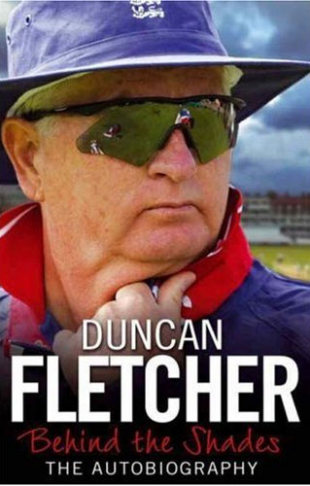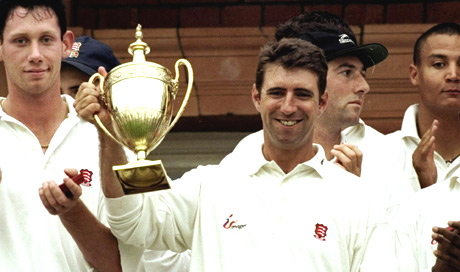My Favourite Cricketer: Frank Hayes
February 13th, 2009 by TWC in My favourite cricketer
Thewisdencricketer.com reader Paul Eade is the fourth winner of our My Favourite Cricketer competition for his entry on Lancashire batsman Frank Hayes
Frank Hayes was destined to be my favourite cricketer. In 1973, I discovered cricket. Hayes was the man who stood out from the crowd.
Nowadays, a player of his appearance would not get a second glance: Hayes had long blond hair. His favourite band was Pentangle. Hardly revolutionary stuff but this was several years before any English cricketer even dared sport an earring, yet alone a green Mohican.
Sure, some of the England team of 1973 looked worthy of worship - but only in a square-jawed-World-War-Two-
Hayes made 106 not out on his Test debut against the West Indies at The Oval that summer. My abiding memory is of him standing - capless of course - at solitary slip on the sun-bleached Lord’s turf while Rohan Kanhai, Garry Sobers and Bernard Julien batted for what seemed like a week (it was actually less than two days but they did make 652).
What followed taught me plenty: I had to come to terms with frequent disappointment and frustration.
He was an automatic choice for the 1973-74 tour to the West Indies. It wasn’t a happy experience. Nevertheless, England, against all the odds, squared the series by 26 runs in the fifth Test at Port-of-Spain, mainly thanks to Tony Greig’s 13 wickets in the match. Hayes made 24 and 0 but the figures do not tell the whole story. His first innings score was made over two hours while almost passing out from a chronic stomach complaint.
Surely, Hayes had done enough to warrant selection against India the following summer. And when he stroked a career-best 187 against the tourists at Old Trafford he was a shoo-in for the first Test, on his home ground. No. To rub salt into the wound, England’s batsman scored at will against a terribly weak Indian attack.
But there was one bright spot. By 1974 my parents trusted me enough to go to the cricket at Scarborough on my own. Lancashire were one of the visitors to the Festival. I didn’t own an autograph book – just a blank page headed “Autographs” in a cricket magazine. Behind the pavilion at Scarborough a staircase led to the club offices - a prime place to catch the players on their own. I was there at 10am - just me and one other kid. Footsteps on the stairs. It was Hayes. I was speechless and just able to summon enough movement in my arms to hold out my page like a silent offering. Hayes signed for me and the kid. He didn’t sign another all day. I still have the signature, cut out and pasted into my autograph book.
Overlooked for the Ashes in 1975, Hayes got one last England chance against the ferocious West Indies pace attack of 1976. He made nought and 18 in a mauling at Old Trafford before moving on to the fourth Test at Headingley - for which I had tickets for the fourth day. The scheduling went to plan. Hayes, made seven in the first innings, came out to bat in the second innings with the score at 5 for 1 as England chased 260 to get back into the series. He struggled helplessly for 10 balls before Viv Richards caught him off Andy Roberts for a duck. “That’s the end of his Test career,” was all I could whisper to my friend. England lost by 55 runs and the rest of the summer was a write-off.
His county career burned on for another nine years, with three seasons as Lancashire captain. The highlight came when he hit Malcolm Nash for 34 off an over (6, 4, 6, 6, 6, 6) against Glamorgan at Swansea in 1977. In a way, that summed up Hayes. It was explosive batting – but with one more six he would be remembered as the man who matched Sobers.
Paul Eade, captain of Guttsta Wicked Cricket Club in Sweden, wins a year’s free subscription to The Wisden Cricketer
To enter submit no more than 600 words on your favourite cricketer to [email protected], subject line ‘favourite’
Posted in My favourite cricketer | 4 Comments »



